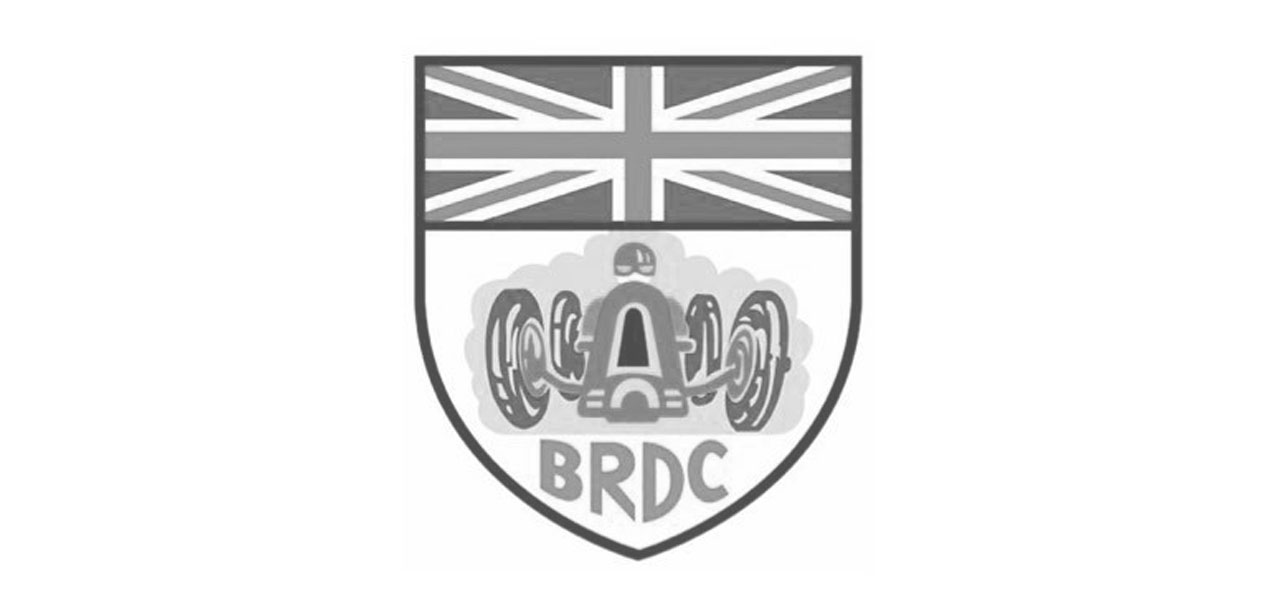ROYAL PROGRESS
By David Tremayne, originally published in Grand Prix Plus (www.grandprixplus.com)
Date: 01 / 08 / 2016
For Jordan King waiting for a GP victory was like queueing for a London bus; you wait ages, then two come along at once…
So what did it really mean to the 22 year-old from Harbury, when he won the Sprint Race in Austria? Finally to have added a GP2 victory to his F3 successes, to make the big turnaround after a mixed start to his second season in the league one step below F1?
“It’s more of a relief more than anything,” he said on the Thursday at Silverstone. “I feel really relaxed and content. It wasn’t really like, exciting, or it wasn’t anything hyped up. It was actually the complete opposite. It was more just like, ‘Oh finally!’ It was like a deep breath in, lying-on-a beach type of feeling rather than all excited, as I feel like it’s been a long time coming. But I was kind of looking in the mirror thinking, ‘Well, when is it going to come?’ I felt like I was good enough, but would sometimes think, ‘Am I actually good enough? Because it’s not happened yet…’
He drove a super race in difficult weather conditions at Spielberg, and then out came the Safety Car to negate the lead he had so carefully crafted. Was it all about to go away again? But when it came to it, he simply pulled away again from main pursuer Oliver Rowland, who it transpired had greater worries trying to keep third Brit Alex Lynn at bay.
“It was good to win a race where you actually won it, and won it quite nicely after looking after your tyres and everything,” he adds. “We all want to have a Feature Race where you’re in 10th and pit stops fall into your favour and you win, but that’s not really winning the race, is it? It’s kind of the cookie crumbled in your favour. It was really good to win by controlling the race from the front.”
And perhaps a little satisfying that, after they had collided in Baku, he watched as teammate Norman Nato slipped back in Austria while he himself surged forward. “I looked at my brakes halfway down there, we were braking at 150 metres,” he says of the incident that occurred with his Racing Engineering running mate in Baku. “Then I looked at my brakes at 75 metres, and he wasn’t even putting me under pressure so I didn’t look again, and by the time I’d turned in, he’s suddenly there.”
While the success in Austria was great, screwing up in Monaco still clearly rankles. “If I didn’t throw that away…” he begins. “I was running second just behind Norman, and I was struggling a little bit with the fronts because I was pointing the car quite early, and I just touched the inside of the barrier in Turn Four. It just bent the steering enough to damage it. Okay, the Virtual Safety Car thing gave Markelov the victory over Norman in the end, but we should both have jumped him in the pit stops because he had like a 12s stop or something because he didn’t stop on his marks and then his car fell off the jacks… We were on for a podium there, for sure.”
Subsequently he felt that a red flag in qualifying spoiled his chances in the GP2 Feature Race on his home turf, as he had the pace to mix it at the front, but nevertheless started seventh within a second of pole. He was third by the end of the opening lap and second a few laps later, making inroads into Nato’s lead.
“Sadly, my tyre wear became a factor and the pit stop call was wrong,” he admits. “When a delay changing the right-rear wheel lost us vital seconds, I knew a top-four result was lost. Still, eighth place equated to four championship points and reversed-grid pole for race two.”
And once again a GP2 Sprint Race simply surrendered to him. He led throughout, and again had to withstand a late test of nerves in the form of a shower in the closing stages. He passed the test admirably, fending off Luca Ghiotto by half a second.
“It was a fantastic feeling to be sitting on pole position at Silverstone in front of the home crowd. I made a good start and concentrated on getting my head down, controlling the pace and reeling off the laps. But having won in Austria, I felt under less pressure. I knew how to win a GP2 race from the front, so I was focused on doing just that once more.
“Luca was catching me at quite a rate, so I had to drive cleverly to make sure I kept in front. It was a case of looking after the tyres in some places and making sure I was out of reach of an attack for the lead in others.”
Once again it all clicked, further boosting his reputation. “We’re getting there,” he admits. “We’re on top of the car, the pace is there, and the racecraft is good, so I’m looking forward to keeping up the momentum.” He says he’s happy with how he’s driving in his sophomore year.
“I think speed-wise it’s really good. As a team, Racing Engineering is still lacking in qualifying. You see there’s two teams in particular that seem to be quite strong in qualifying [PREMA Racing and ART Grand Prix], so there’s still work to be done, for sure. But I don’t think it’s just us. I think it’s ninety percent of the field. There’s something that’s not quite clicked. We saw in Austria, it was the front three from the two teams and then a three-tenth gap. I think that couple of teams have found something in qualifying or on the option tyre. But I think our race pace is pretty good. In the races, we seem strong.
“I think the only thing I’m a bit… what’s the right word? Guilty of, is over-saving my tyres. I’ve always got tyres left, I’m always coming back at people at the end of the race, so sometimes I’ve left a little bit too much on the table. So from my driving side, I’ve just got to trust that the tyres will hold on more, and I’m just saving that extra couple of percent where you don’t need to.”
Like most sophomores, this year he knows just what he’s doing in qualifying, track positions are better, and all of the small details are there which you don’t actually realise you’re doing are better. The deployment of the Safety Car in Spielberg showcased his level of improvement.
“My initial instinct was just, ‘No problem. I just hope I’ve got tyres left! I hope Ollie wasn’t saving his too much.’ And then the team came on the radio and said, ‘What about slicks?’ And then I was suddenly like, ‘Oh yeah, what about slicks?’ But being at the front, you can’t be the first one taking that risk. And for those who did, it took three laps for them to be quicker. Markelov was the first to switch, further back, and at the beginning they were crap, and then suddenly they were as fast as wets. But I was two/three seconds quicker than everyone else on wets, so I actually managed to match the slick times at the end of the race anyway.”
King is an engaging fellow who, while he takes his career and driving very seriously doesn’t take himself too much that way. He doesn’t seem to carry any baggage, and can analyse himself honestly.
“I was surprised in the whole race that I was that much quicker than everyone. It was surprising how… well, easy is not the right word… but I was surprised how easy the race was, but I think it was just down to the fact that from very early on when the track started to dry, I started moving on to the wet bits. When I was looking in my mirror with Ollie, he wasn’t. So I think it was just that I started cooling the tyres down five laps earlier than I needed to, that was actually what helped me.”
It reminded me of what John Watson had said earlier in the Austrian week, wondering how it was that the 1976 Grand Prix was suddenly so straightforward when he was in the lead even though he was just doing his usual thing.
“Yeah,” King agrees, “it was a bit like that. I was saying to the engineers that it’s just like you have a race where you finish third and you’re doing the best you can and you’ve been on the knife edge to get everything out of the car and third was the best thing you could hope for. And there I was just driving in the lead, like there was a margin. When Ollie closed up a couple of tenths, the next lap I pushed a bit more and went two tenths quicker than him. I was in control. I could control my speed.
I wasn’t pushing a hundred percent and obviously the car was good, so you could do that. It makes you wonder why you can’t do that every weekend and have that kind of margin on people, because when you’ve got that kind of margin, you can control the race a lot more. I didn’t need to push. I could think about saving the tyres. Because I had the pace advantage, I could think about the other things. It does make you wonder why you can’t do that every weekend…”
The first win in a category is always a big deal for any driver, that personal confirmation: Now I know I can do it and so does everyone else. “Yeah,” King laughs. “You know you can do it, but you just needed that confirmation. But when you have a weekend like that you’re like, ‘Well surely we can just make a car that’s good and I can drive like that and it’s all good every weekend.’ But there are such fine margins and if someone comes in a slightly better car…”
So what’s the plan now, after two victories? Just keep doing it? “It would be nice to be on pole and to check out and win a Feature Race,” he mused at Silverstone. “But I don’t think that’s the target to aim for. I got interviewed earlier on the radio and it was of course, ‘Yeah, you want to come in and win races – that’s what you’re here to do. But I think if you set that as your target you become very disappointed if you don’t do it. You get so wound up focusing on that target, you end up falling short of the bigger picture. And the bigger picture is just scoring points. I think in Monaco I was probably a bit guilty of that. Because I was in second, it was, ‘Oh I can win the Monaco Grand Prix here!’ But actually, if I was sitting here now with a second place in Monaco and 20 points from the weekend, I’d be in a lot better position.
“If I’d won in Austria before Monaco, I probably would have done it differently, yeah. But that’s what I mean… Yeah, a Feature Race would be great, putting it on pole would have been great, but the aim to win the championship is the bigger picture. To win the championship, you score points. At Monaco I was a little bit guilty of trying to go for the glory rather than actually seeing the bigger picture, and I think I’ve realised that now.”
Like any GP2 racer, his ultimate aim is an F1 seat, and he has tested as development driver for Manor in Abu Dhabi last year, and again after Silverstone this year. That’s always a big moment, but he kept his feet on the ground on both occasions.
“The way I describe a Formula 1 test is that it’s not your test, it’s their test,” he says pragmatically. “It’s not about you being quick. It’s not about you looking good. From a selfish point of view, personally, of course you want to look quick, you want to be fast, you just want to drive a car as fast as possible. But fifty percent of the day is doing CSL’s – constant speed limit running – and as a racing driver, that can actually seem quite boring.
The team control the fuel level, they control when they put new tyres on, they control what goes on the car, they control what engine setting you’re on. So it’s their test, it’s not yours.” It’s more about playing along, helping the team… “Exactly, it’s all about the feedback and helping them to make progress. For them, they could be 50 seconds off the pace but as long as they’ve got all the information they need, it’s fine.”
He ran 70 laps in the Manor MRT05 on the Wednesday at Silverstone, and was impressed with how much improvement the team had made since his first outing the previous December in the old Ferrari-engined MR03B. “It’s clear the team have made progress with the car and I was impressed by the performance, we’re heading in the right direction,” he said. “As the development driver it’s enormously satisfying to drive this car, provide feedback, see your recommendations implemented and the car’s characteristics improve as you foresaw.
“I think as a team we can be quite happy with where we are and there are exciting times ahead.” But is he even looking at next year yet? Again, the pragmatism. “I would say I’m focusing on this year with the mind on next year, if that makes sense? Because if I have a good year this year, it will help me next year, so I’m not putting my energy into next year, I’m putting my energy into this year to help next year.”
Though he comes from a well-to-do family – father Justin was described as “charismatic and efficient” during his days as chief executive officer at Sainsbury’s – he’s made a lot of progress by his own efforts, and is notable as that rarest of figures – a Brit who knows how to find money.
“When I left school after my A ‘Levels, that was more my day job in the sense that I was going to find the sponsorship,” he says. “I’ve got 11 partners this year. Two Sisters have been on the car with Goodfellas and Foxes since 2012. Then there’s Bulova, the watch company, who are putting a lot of effort into the marketing as well. I’ve got a consultancy company called Invent a
Brand, they’ve been along all the way. And PlusNet, who organised a nice competition at Silverstone for a small business to win space on the car. And a couple of more recent ones like Duerrs have come along.”
Duerrs are a Manchester company that makes jam, which must be a first in any kind of motorsport. And in an echo of Damon Hill’s early career, he’s secured support from Ricoh. “I met them at a rugby match actually and gave the guy my card and said, ‘Come along to a race.’ They have a good young sportsman programme. “
A lot of our sponsors have come along on the journey for five or six years, and they have started to activate it now as well. I was here [Silverstone] two or three weeks ago doing a photo shoot with Bulova. We had a car, drove around and put the cameras on it and everything. So that’s for their new campaign.”
King’s secret is being realistic in his approaches to potential sponsors. “The idea behind it is more the American model,” he reveals. “In NASCAR you might see 100 sponsors each paying £1 rather than one sponsor paying £100. So that was the kind of idea behind it: it’s a lot easier to ask 100 people for £1 each rather than ask one person for £100. They all get better value for money because they’re still getting the involvement but it’s not costing them as much. And if 10 companies are all doing advertising, there’s the space on my racewear and the car for all of them, so it’s massive value for money. Their £1 is actually being stretched to a value of £100 because all the other sponsors are putting the same in or more, and pushing the advertising.”
He’s done all the legwork himself, and still regularly goes to see his sponsors, having built up valuable personal relationships with a lot of them. It’s how the likes of Perry McCarthy did it back in the Eighties, getting off their backside and going out knocking on doors.
King smiles at the notion. “When I was 18, my Dad was like, ‘It’s your career, so you can go out and do it.’ Obviously he gives me advice – the same as when I used to call him up at 14 asking for help on my homework!”
At Silverstone recently, King entertained 36 partners and guests, in the Brooklands Suite, and had family members in the BRDC. It’s safe to say they all went home very happy.
To subscribe to Grand Prix +, F1’s fastest weekly magazine, click here








